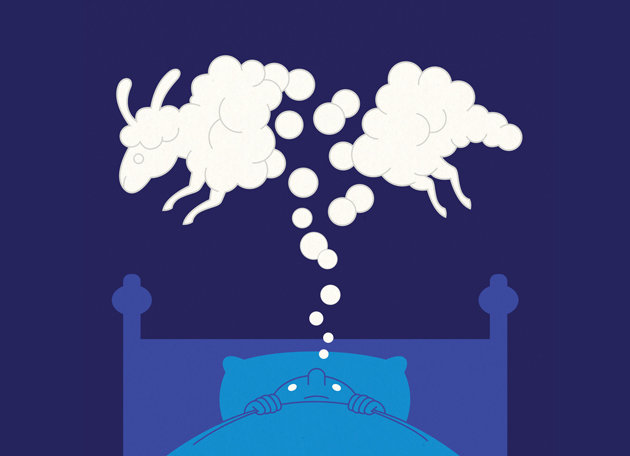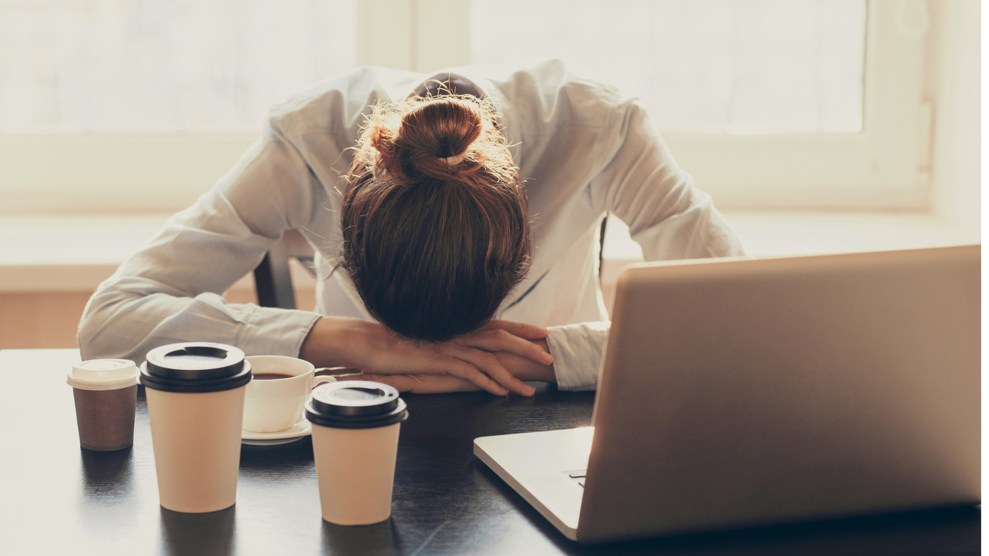
Once upon a time, insomniacs counted sheep. Today, they take melatonin. Referred to by scientists as the “hormone of darkness,” melatonin is naturally produced by a gland in the brain at night, but it can also be purchased at any major drugstore. Millions of Americans take it, whether swallowing it in pill form, spritzing it on their skin, or enjoying it in fruit-flavored gummies. You can even pick up melatonin-infused chocolates at Whole Foods.
A sleep specialist recommended I try some six years ago, when I came to her office in desperation after months of tossing and turning. I was skeptical but figured I’d give it a shot; no prescription was needed, and Walgreens sold bottles for about $10. I swallowed a 3-milligram pill before bed and nodded off within minutes of lying down. Melatonin felt like a miracle—and I started taking it every night.
An estimated 50 to 70 million Americans have a sleep disorder. According to the National Center for Biotechnology Information, between 2002 and 2012 there was an 8 percent increase in adults and a 31 percent jump in young adults who experienced insomnia or trouble sleeping. Melatonin has gained a reputation as a safe, natural remedy, especially compared with drugs like Ambien that can be habit-forming and have more serious side effects. From 2007 to 2012, the number of adults using melatonin more than doubled to 3.1 million people, while the number of kids taking it increased by 482 percent. And sales of the hormone grew 20 percent annually for three years after that, according to the Nutrition Business Journal.
Yet despite melatonin’s popularity, it’s not regulated like a drug, and nobody has ever tested it to make sure it’s safe for long-term use. Which means that when it comes to questions about how much of the hormone to take, we’re still largely in the dark.
Melatonin was discovered in 1958, and it was MIT researcher Dr. Richard Wurtman who started investigating its role in sleep. In 1993, his lab asked 20 young men to go into a dark room at midday and close their eyes. Those given melatonin tended to fall asleep within six to nine minutes; the rest stayed awake longer. The discovery made waves, but Wurtman warned at the time that “people should not self-medicate with melatonin,” fearing possible mood-altering side effects.
It took off anyway. Because the hormone is found naturally in some foods, US law allows it to be sold as a dietary supplement instead of as a drug. Manufacturers don’t have to prove melatonin is safe or effective, and since labels tend to describe it vaguely as a “drug-free sleep aid” or a “clinically studied ingredient,” many consumers don’t realize they’re taking a hormone. Federal oversight is minimal. “We have 26 people who work on dietary supplements directly,” says Food and Drug Administration spokeswoman Lyndsay Meyer, who notes that the agency had less than $5 million to regulate the $41 billion industry last year.
What we do know raises questions. Some studies indicate that large doses of synthetic melatonin can increase the body’s levels of prolactin, a hormone that helps regulate the menstrual cycle, triggers milk production in new mothers, and is associated with altered sperm count in men. Other research suggests melatonin may affect sex drive.
Meanwhile, scientists don’t even agree on the proper dose to use for insomnia. Wurtman recommends between 0.3 mg and 1 mg, warning that more might lead to desensitization and daytime grogginess. But 1 mg is the smallest dose available in most stores, and people often opt for 5-mg or 10-mg pills instead—potentially elevating their blood melatonin levels to 50 or even 100 times normal levels. A study published in the Journal of Clinical Sleep Medicine found that for more than 71 percent of over-the-counter melatonin samples tested, manufacturers didn’t accurately label the doses—one product contained nearly five times more of the hormone than listed. At high doses, Wurtman argues, melatonin soon becomes ineffective for sleeplessness; receptors in the brain can stop responding to it. Some researchers disagree. (Wurtman receives royalties from a company that sells melatonin capsules containing doses of less than 1 mg.)
In parts of Europe, where you’d need a doctor’s prescription to buy melatonin, experts also recommend 1 mg a night. I spoke to several US scientists who agree many American insomniacs are taking more of the hormone than necessary. “Most people, not understanding the science, might pick the higher dose,” says Craig Hopp, a program director at the National Institutes of Health. “It’s somewhat human nature, at least in American culture, that more must be better.” While there’s no damning evidence to suggest higher doses are harmful, he says, if you’re taking melatonin for weeks or years, “it could be that lower doses might be preferential.”
Still, without documented adverse effects, many doctors don’t see a problem recommending melatonin at higher doses, and for long-term use. Even Wurtman pops a melatonin pill each night—though he keeps his intake to less than 1 mg, of course.
But there are other options. Turning off your screens and giving yourself more time to unwind in the dark can stimulate natural melatonin production. That’s not always easy for those of us glued to our email or Netflix, but I’m giving it a shot. After half a decade of taking melatonin every night, I weaned myself off the hormone completely about a month ago. So far, I’m sleeping just fine.













